
From stale mince pies to cold mashed potatoes, those unappealing leftovers could provide much-needed calories for hungry birds and badgers. Dulcie Fairweather looks at how to turn waste food into tasty treats for your garden visitors.
As the temperatures drop and natural supplies become scarcer, life can be particularly tough for garden birds and other wildlife at this time of year.
Shorter winter days leave birds less time to find food just when they need enough energy to keep warm. And, with our native wildlife under more pressure than ever before, any small helping hand you can give – whether you have a big garden or a small window box – will help them get through the extremes of the winter months.
Here are some tips on what can be put out for wildlife to enjoy, and what foods to avoid.
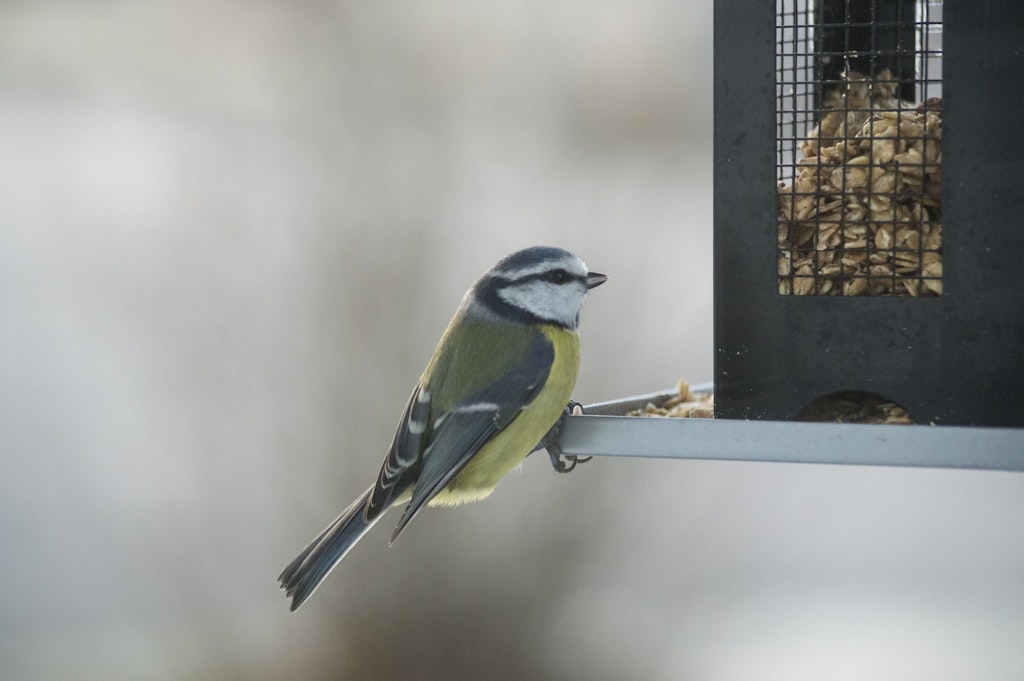
Tasty titbits to share
If you’d like to encourage badgers, they have an appetite for unsalted peanuts, brazil nuts, root vegetables and bread (which can be soaked in water or spread with peanut butter). Foxes would be grateful for any scraps – they are by no means fussy creatures – but if you have leftover meats (cooked or raw), these would certainly go down a treat. Only leave enough that can be eaten in one day to avoid attracting unwanted visitors, such as mice and rats.
Dried fruit, unsalted nuts, or sliced apples and pears past their best will greatly benefit any garden visitors. Boasting a high water content and plenty of natural sugars, fruit is ideal for providing garden birds with the added energy they need to survive winter.
Mild grated cheese is a firm favourite with robins, dunnocks, blackbirds and song thrushes. You could even try sprinkling some under trees and bushes for more timid birds such as wrens and dunnocks. It is best to avoid strong or blue cheeses, stick to stale, hard cheeses like mild cheddar.
Another big hit is potatoes – you can roast or mash them (with added real fats) to be a festive delicacy for your feathered friends. If you are offering baked potatoes, they need to be cold and opened up.
In the unlikely event there is a spare mince pie or some stale cake left over, you can share them with your birds. Break up any large pieces, and if it’s very hard you can soak in a little water to ensure birds don’t choke. However, it’s worth noting that some pets react badly to dried fruits such as grapes, currants, raisins or sultanas – this is something I must always consider, as my dog is practically a hoover and would not hesitate to eat what he shouldn’t.
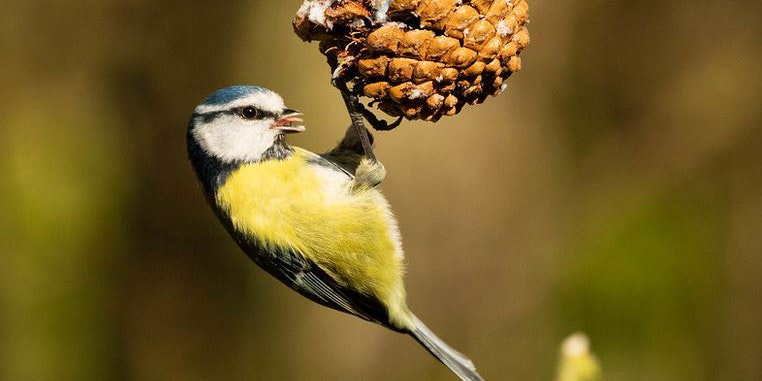
Fresh water sources
If you’re putting out lots of tasty food, it’s also worth providing fresh water to help wash it down. This can be difficult for birds to find during cold periods as natural sources start to freeze over. Water to bathe in is essential so that they keep their feathers in good condition, and they will need to do this even in the depths of winter.
You don’t have to have a pond or birdbath, even an upturned bin lid or a simple plant saucer can give birds the liquid they need. Putting a light ball (such as a ping pong ball) or even a cork in the water will help keep it ice-free for birds to use.
A tale of caution
As exciting as it is to encourage wildlife in your backyard, it is vital to be aware that it is possible through kindness to cause harm.
Not every leftover is suitable for sharing with birds and wildlife. Below are a few snacks that should not be offered to our feathered friends.
Most importantly, putting out excess cooking fat is a big fat no-no. Unlike lard and suet, cooked turkey fat remains soft even when cooled, meaning it can get onto birds’ feathers and ruin their waterproofing and insulating qualities. Furthermore, juices mixed in roasting tins will go off very quickly and could cause disease on bird tables. Birds are very susceptible to disease at this time of year as their defences and energy levels are lowered due to the cold.
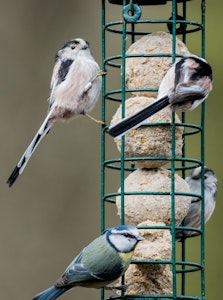 Instead, why not create your own calorific delicacies for the birds by making your own pinecone feeder. This can be a fun family activity to enjoy together – and it helps keep your birds fed this winter.
Instead, why not create your own calorific delicacies for the birds by making your own pinecone feeder. This can be a fun family activity to enjoy together – and it helps keep your birds fed this winter.
In light of the current spread of avian flu, the RSPB advises that we maintain good hygiene at bird feeding stations. While it is extremely unlikely that bird flu could be transmitted to people by feeding birds in the garden, it’s a sensible measure to follow hygiene guidelines. Bird feeders should be washed and cleaned regularly to prevent spread of diseases such as salmonella.
Another key thing to note is that too much salt is toxic to garden birds as they are unable to metabolise it. It also makes them excessively thirsty and at risk of dehydration, so never put salted food on the bird table. A good rule of thumb is that foods that are generally unhealthy to humans are likely to be unhealthy to wild birds too. While this isn’t always the case, it’s a handy reminder that putting out processed fatty foods is best avoided.
And finally, once you’ve established a feeding routine, do try to stick to it as birds will keep coming back for more once they realise there’s a new food source in town, and they’ll adjust their routines to suit.
Help nature thrive
In an ideal world, birds and other wildlife would not be dependent on scraps from our table. Ultimately, we need to change how we use land so we can create much more space for nature to thrive; this will mean doubling forest cover, restoring lost habitats and supporting more farmers to produce foods in wildlife friendly ways.
In the meantime, you can help your garden wildlife to survive the coldest season by responsibly supplementing their diet. By using food that would otherwise be discarded, households can take a small step to becoming more sustainable and eco-conscious for future generations.
- Woodland
- Gardening and Agriculture
- Building
- Nature and Wildlife
- Autumnwatch
Related Topics
Related Pages
Related news

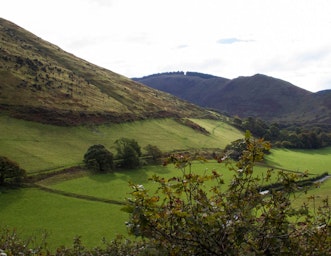
CAT Conversations: Sandy Stevens, CAT graduate
17th April 2025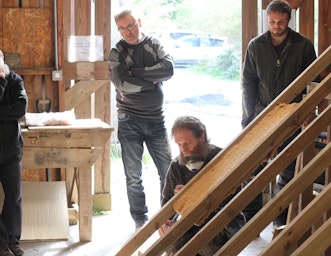
CAT stories – Nick Parsons and Mike Russell
29th January 2025
Ready for retrofit
29th January 2025EMAIL SIGN UP
Keep up to date with all the latest activities, events and online resources by signing up to our emails and following us on social media. And if you'd like to get involved and support our work, we'd love to welcome you as a CAT member.
